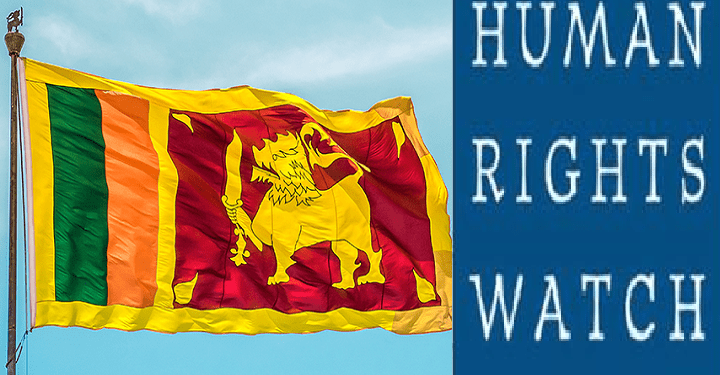Human Rights Watch has called on the United Nations Human Rights Council to renew its mandate on Sri Lanka for another two years given Sri Lanka’s lack of accountability for war crimes as well as increasing incidents of Sri Lankan authorities denying the freedom of religion and the basic rights of the Tamils.
“The Sri Lankan government’s loud claims of reconciliation ring hollow in the face of increasing suppression of minority religious and cultural identities,” said Meenakshi Ganguly, deputy Asia director at Human Rights Watch. “Concerted international pressure is needed to reverse this nefarious campaign, which promotes Sinhala Buddhist nationalism at the expense of other populations.”
Elaborating on the numerous incidents that have been reported for the last few years including several that took place this year, Ganguly says Sri Lankan authorities were conducting a campaign to deny Hindu and other religious minorities access to places of worship and other property while designating these locations as Buddhist sites. She faulted that government agencies such as the Department of Archaeology, the military, and police, “have taken part in a concerted strategy assailing the culture and practices of religious minorities. They are promoting majority Sinhalese Buddhist settlement in Sri Lanka’s north and east to the detriment of the predominantly Tamil and Muslim populations’ rights to property and religious freedom.” She says there seems to be a pattern that emerges at temples throughout the North-East where authorities supported by Buddhist monks have damaged or removed Hindu idols, threatened or attacked worshippers denying them access to these locations. This she says is part of a large concentrated attempt targetting Tamil and Muslim properties in land grabs.
HRW details locations such as Thaiyiddi where the Sri Lankan army constructed a Buddhist temple on land that local residents and politicians alleged is owned by Tamils. Meanwhile at Mylanthanaimadu and Periya Maadhavanai, in Batticaloa hundreds of Tamil and Muslim dairy farmers, who say they have used area lands for grazing for generations, have been in disputes with Sinhalese arable farmers, many of them former soldiers who have been settled in the area with government support since 2010.
The Human Rights Watch details several incidents of intrusive surveillance of activist groups, suppressing dissent, and increasingly violating the right to freedom of religion. It was only earlier this week that the Terrorism Investigation Department summoned the head of the Families of the Disappeared in Batticaloa to appear before the TID to provide a statement.
“The Sri Lankan government’s deepening repression of minority communities will only end when there is genuine accountability for past war crimes and ongoing abuses,” Ganguly said. “To reduce the risk of further violations, it is crucial that the UN Human Rights Council renews its mandate on Sri Lanka for another two years.” She added that since the end of the war, international efforts to ensure justice for conflict-era crimes and address ongoing rights violations have focused on the United Nations Human Rights Council. The current resolution of the council, which mandates evidence gathering for use in future prosecutions related to the war and ongoing monitoring of human rights in Sri Lanka, is due to expire in September.


